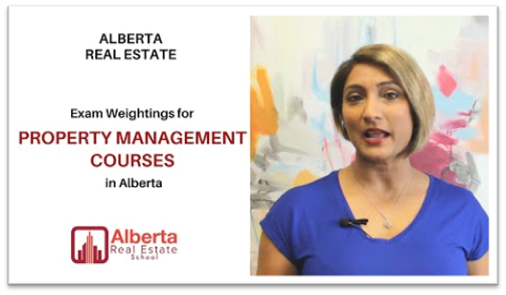In order to be eligible to become a Real Estate Agent in Alberta, you need to know important agreements and documents you have to use as a Real Estate Agent. A Seller Representation Agreement or a Listing Agreement is a very important document for Realtors® that is used when an agent is representing a seller of the property.
Let’s breakdown an actual Seller Representation Agreement and understand the components of the same, when are they used and what is the importance of each of its components.
What is a Seller Representation Agreement?
A Seller Representation Agreement, commonly called as a Listing Agreement, is an authority by the seller to a real estate brokerage. The listing agreement is the contract between you and the brokerage that permits them to market and sell your home. These agreements should be in writing in order to protect the interest of all parties. Additionally, the listing brokerage can act on his/her behalf in offering a property for sale (or lease) on terms and conditions set in the agreement.
When do you need a Seller Representation Agreement?
It is a written service agreement that includes the details of the listing, including listing price, inclusions/exclusions, possession date, and lists your responsibilities and obligations as well as those of your real estate licensee. When you are selling your home, your broker or salesperson will ask you to sign a listing agreement.
Functions of a Seller Representation Agreement
The listing agreement performs several functions:
- Establishes the seller/brokerage agency relationship with the limitations on the agent’s authority
- Provides property specifics for paper and electronic distribution
- Furnishes information for negotiations and drafting offers
- Outlines Services of a Real Estate Agent / Brokerage
Components of a Seller Representation Agreement
Most listing agreements contain two parts: the authority (legal relationship) and the data input form (property particulars).
Authority
The listing agreement sets out the legal relationship, obligations of the parties, and time limits concerning such authority. Also, it sets out commission arrangements including a holdover provision. The seller should set the listing price in this agreement.
Data Input Forms
It includes forms for MLS Advertising. Other necessary documents include forms for amendment to listing, suspension, and cancellation of the listing.
The main components of a Seller Representation Agreement include:
Dower Rights
In Alberta, based on the Dower Act regulations, if you are married, but your spouse isn’t a registered owner on your property title, you may need their consent in order to sell the property. These are called Dower Rights of the untitled spouse. Titled and Untitled Spouse come from their name being registered in the Certificate of Title of a Property (Property Ownership Certificate). The seller representation agreement refers to spousal consent, and your real estate licensee can provide you with more information.
Possession Date
You can list a specific preferred possession date, or you can indicate it is negotiable. It’s up to you if you are willing to negotiate the possession date.
Attached Goods
Attached goods are items you cannot remove from the property without causing damage or that are physically attached to the property via pipes, screws, bolts, or nails. Attached goods stay with the property unless there is a specific exclusion in the listing agreement or in a buyer’s offer to purchase. Attached goods are typically included with the property. These include:
- Garburator
- Water Softener
- Kitchen Cabinets
- Built-In Appliances
- Central Vacuum System
- Garage Door Opener
Unattached Goods
They are movable items. Sellers usually take unattached goods from the property before the buyer takes possession. These include:
- Wall Art
- Area Rugs
- Drapes Hooked on Curtain Rods
- Attachments for Central Vacuum System
- Remotes for a Garage Door Opener
- Movable Kitchen Island
Unattached Goods are not included with the property. If a buyer wants an unattached good included in the purchase of the property, such as the garage door opener or the attachments for the central vacuum system, they need to list it as an inclusion in their offer to purchase. As the seller, you would have to agree to such an inclusion as part of your acceptance of their offer. If you plan to take the unattached good, you need to put that in a counteroffer to the buyer.
Inclusions and Exclusions
Inclusions are items you are including with the sale of your home and exclusions are those items you will exclude. Be specific with your inclusions and exclusions in your listing agreement and in any offers/counteroffers.
Material Latent Defects
Material latent defects are defects that a person cannot discover with reasonable care during an inspection. They include defects that:
- make a property dangerous or potentially dangerous
- make a property unfit to live in
- make a property unfit for the buyer’s purpose (if the buyer has told their industry member or the seller’s industry member the purpose)
By law, sellers, and their real estate representatives, must disclose known material latent defects to potential buyers.
Material latent defects may include:
- the seller has finished the basement of their house and in the process covered the large crack in the basement wall that affects the structure
- the seller has finished the basement of their house, or built an addition or a garage, without the appropriate permits
- the seller knows that whenever it rains, water enters the house
- the home was a former marijuana grow-op and repair of the property has not occurred.
Stigmatized Properties
The term “stigmatized” means an unfavourable quality in a property or one that makes the property less attractive or unattractive, but that is unrelated to the physical condition or features of the property. Stigmas may include:
- that a suicide or death occurred in the property
- the property was the scene of a major crime
- the address of the property has the wrong numerals
- reports that a property is haunted
You are not required to disclose stigma to potential buyers because they are not material latent defects. The buyer or buyer’s representative may ask you about possible stigma. You are not required to answer their questions, but if you choose to answer – you must do so honestly. If you refuse to answer, the buyer will have to decide if they’re comfortable proceeding without the information.
Holdover Clause
Listing representation agreements typically include a “holdover clause”. Generally, it means that within “X” days after the agreement expires (the “holdover period”) if you sell to a buyer that was introduced to you during the term of the agreement, you would be responsible for paying commission to your brokerage. The length of the holdover period is negotiable.
Things to Keep in Mind Before You Sign a Seller Representation Agreement
- Your broker or salesperson wants to provide you with the best service he or she can. To make the most of this relationship, it’s important to clarify your needs and expectations. To avoid misunderstandings later on, it’s important not to make any assumptions.
- Discuss all of the services that will be provided. Take the time to clarify the fees and costs related to these services and make sure the written agreement is clear.
- You should also take time to ask what the broker or salesperson expects from you and what your obligations are.
- Remember that you are entering into a legally binding agreement with the brokerage authorizing the brokerage and the salesperson to represent your interests in the sale of your home. You and the brokerage will be bound by the agreement.
- Once all parties have signed the agreement, the brokerage will provide you with a copy.
- If you choose not to sign an agreement, the brokerage is still responsible for outlining the services that will be provided to you by the brokerage.
- Don’t sign if you don’t understand it. Never sign an agreement unless you are sure you know how long it will be in effect, what geographic area it covers and what the different clauses mean. It’s one of the most important steps you can take to protect yourself.
Hope you enjoyed the blog and understood the concept of Seller Representation Agreement in Real Estate. Join Alberta Real Estate School for expert help with learning Real Estate & Mortgage Brokerage Courses.

We also have other important videos including where we share a glimpse of our Training Sessions. One of them is – How to Read a Real Property Report. Check it out here!
Get our Focused Study Guides, Video Courses and “in-demand” Tutoring Sessions to get you through the Real Estate Exams on the first attempt!
Get in touch with at 587.936.7779 or support@albertarealestateschool.com.
Happy Studying!





